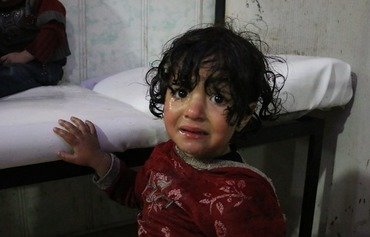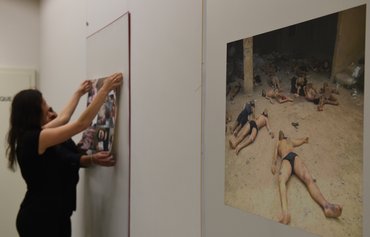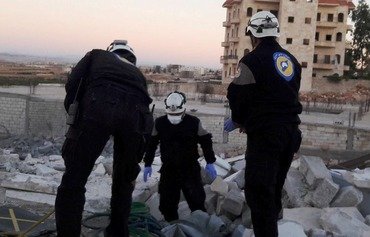War crimes and possible crimes against humanity were committed during the battle for Syria's Idlib province, a UN investigation said Tuesday (July 7th).
The Independent International Commission of Inquiry on Syria said people endured "unfathomable suffering" during the campaign launched in late 2019 by pro-regime forces to retake the last areas held by armed groups.
"Children were shelled at school, parents were shelled at the market, patients were shelled at the hospital, and entire families were bombarded even while fleeing," said commission chair Paulo Pinheiro.
The Syrian regime, supported by Russia, in December relaunched its offensive against the north-western region, which is dominated by Tahrir al-Sham.
A truce brokered by Russia and Turkey came into force in early March. The offensive left one million people displaced and more than 500 civilians dead, according to the UN.
The 29-page commission report covers the period from November 1st to June 1st, and is due to be presented at the Human Rights Council on July 14th-15th.
It documents 52 attacks -- by all parties -- that led to civilian casualties or damage to civilian infrastructure. These included 17 attacks on hospitals and medical facilities, 14 on schools, nine on markets and 12 others on homes.
These attacks were "marked by war crimes", the report said.
"They foreseeably led to massive displacement, as civilians had no choice but to flee, and may amount to crimes against humanity," the report said.
The report accused both regime forces and extremist alliance Tahrir al-Sham of pillaging and other war crimes.
'Completely abhorrent'
Hanny Megally, one of the three people on the commission, said war crimes were likely to have been committed by both the Syrian and Russian air forces.
"We document two incidents where we think it was Russian airplanes that conducted those attacks," he said.
Pinheiro said there was no explanation as to why such predictable levels of suffering were permitted to proceed.
"It is completely abhorrent that, after more than nine years, civilians continue to be indiscriminately attacked, or even targeted, while going about their daily lives," he said.
"Pro-government forces and UN-designated terrorists flagrantly violated the laws of war and the rights of Syrian civilians," he said.
The commission urged all parties to the conflict to cease attacks on civilians, and urged countries to pursue accountability for the documented crimes.
Regime blamed for gas attacks
Separately, Western countries on Tuesday pushed members of the global chemical weapons watchdog to formally condemn the Syrian regime after a probe explicitly blamed Damascus for nerve gas attacks for the first time.
A report in April by a new investigations team at the Organisation for the Prohibition of Chemical Weapons (OPCW) found the Syrian air force used sarin gas and chlorine on the village of Latamneh in March 2017.
The team was set up in 2018 to identify the perpetrators of attacks. Previously the OPCW could only say whether attacks had been carried out, and not who was responsible.
France said the conclusions were "clear-cut" and called for the OPCW's executive council to take action against the regime for breaching the Chemical Weapons Convention.
Finland said the council decision would demand that the Syrian regime cease all use of chemical weapons, provide a "full declaration" of its weapons programme and co-operate fully with the OPCW.
"The draft decision has been the subject of extensive consultations among states parties, and we hope for broad support for its adoption," Finnish ambassador Paivi Kaukoranta said.

![A Syrian man inspects his damaged house following reported bombardment by pro-regime forces on the village of Balyun in southern rural Idlib on June 10th. [Mohammed al-Rifai/AFP]](/cnmi_di/images/2020/07/08/24891-Syria-Idlib-house-600_384.jpg)






